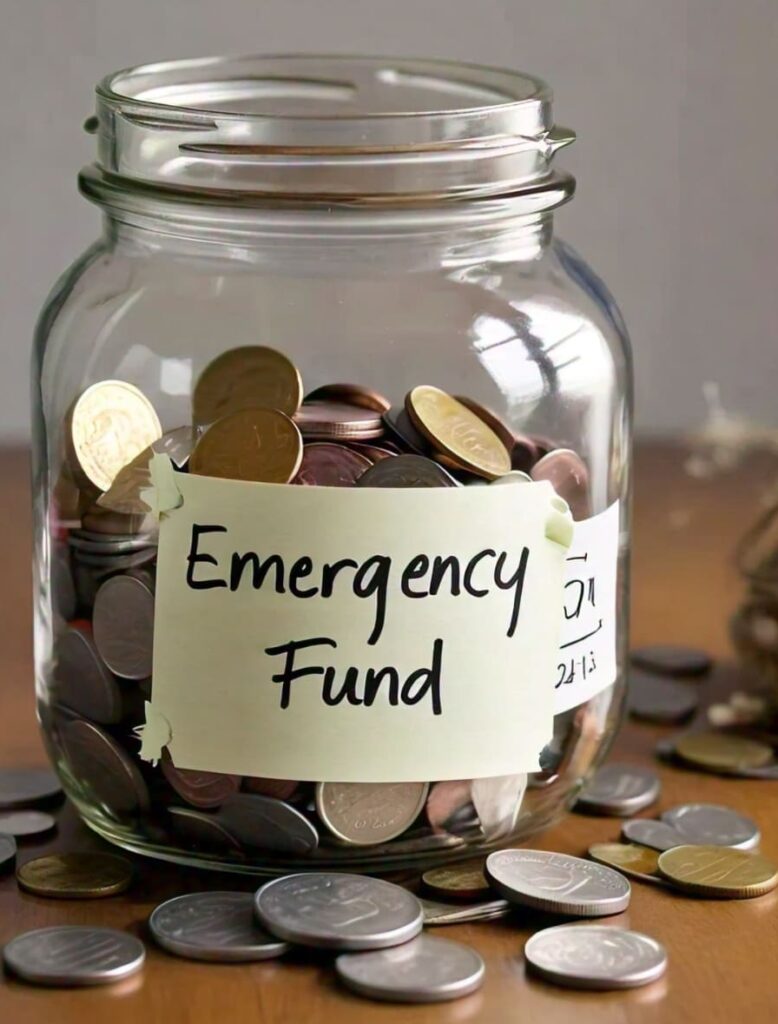The pursuit of financial independence in Nigeria has become more critical than ever, especially for millennials.
With the recent economic instability, rising inflation, and a challenging job market for Nigerians, the journey to financial freedom has become a cause of serious concern.

However, with strategic planning, informed decisions, and a disciplined approach, achieving financial independence can be made a possibility for many young Nigerians.
This article explores the steps millennials can take to secure their financial future, providing practical advice tailored to the unique challenges of the Nigerian economy.
What is Financial Independence?
Financial independence can simply mean having enough money to cover your living expenses without relying on active employment.
It’s about having the freedom to make life choices without being constrained by financial limitations.
For many Nigerian millennials, achieving financial independence is particularly vital due to the economic pressures they face, including job insecurity, high unemployment rates, and the rising cost of living.
In essence, financial independence is not just about wealth accumulation; it’s about financial security and peace of mind.
It involves creating multiple streams of income, making smart investments, and living within one’s means to ensure that money works for you, rather than the other way around.
Ways to secure Financial Independence in Nigeria
1. Set Clear Financial Goals
Financial independence begins with setting clear and realistic financial goals. Whether it’s saving for a home, starting a business, or building an emergency fund, having specific targets helps in creating a focused financial plan. It is a common parlance that If you fail to plan, then you have planned to fail. There are three categories of financial planning
- Short-term goals: These might include paying off debt, saving for a vacation, or setting aside money for emergencies. Short-term goals should be achievable within a year or two and require disciplined saving habits.
- Medium-term goals: These could involve saving for a down payment on a house, starting an investment portfolio, or funding further education. These goals usually have a timeline of 3-5 years and require a mix of savings and investments.
- Long-term goals: These are typically related to retirement planning or achieving complete financial independence. Long-term goals require consistent saving and investing over a decade or more.
To set effective financial goals, it’s important to prioritize them based on urgency and importance. Using the SMART (Specific, Measurable, Achievable, Relevant, Time-bound) framework can help ensure that goals are clearly defined and attainable.
2. Create a Realistic Budget and Sticking with It
Budgeting is the cornerstone of financial independence. A budget would help you track income and expenses, ensuring that you live within your means and allocate funds towards your financial goals.
For Nigerian millennials, where income may be irregular due to the prevalence of gig economy jobs and side hustles, budgeting becomes even more crucial.
Steps to create an Effective Budget:
- Identify your income: Include all sources of income, such as salary, freelance work enumeration, and any side businesses.
- List your expenses: Categorize expenses into fixed (rent, utilities) and variable (entertainment, groceries) costs.
- Set spending limits: Allocate a specific amount for each category, ensuring that savings and investments are prioritized.
- Monitor and adjust: Regularly review your budget to track your spending and make necessary adjustments.
Using budgeting apps or even a simple Excel sheet can help in managing your finances effectively. The key is consistency and discipline in adhering to your budget.
3. Reducing and Managing Debt
Debt is one of the biggest obstacles to financial independence. High-interest debts, particularly from credit cards or payday loans, can quickly spiral out of control if not managed properly.
For many Nigerian millennials, student loans, car loans, and personal loans are common forms of debt that need to be addressed.
Strategies for Reducing Debt:
- Prioritize high-interest debt: Focus on paying off debts with the highest interest rates first, as these are the most costly in the long run.
- Consider debt consolidation: If you have multiple debts, consolidating them into a single loan with a lower interest rate can make repayments more manageable.
- Create a debt repayment plan: Allocate a portion of your income towards debt repayment each month. The snowball method (paying off smaller debts first) or the avalanche method (tackling the highest interest debts first) are popular strategies.
- Avoid new debt: Be mindful of taking on new debt, particularly for non-essential purchases. If you must borrow, ensure that the terms are favorable and that the debt aligns with your financial goals.
Working on managing and reducing debt effectively can help you free up more of your income to be directed towards savings and investments, accelerating your steps towards financial independence.
4. Building an Emergency Fund
An emergency fund is a financial safety net that can cover unexpected expenses such as medical emergencies, car repairs, or sudden unemployment.

Having an emergency fund is one way towards financial stability, especially in a country like Nigeria, where economic conditions can be unpredictable.
How to Build an Emergency Fund:
- Start small: Begin by saving a small portion of your income each month, with the goal of covering 3-6 months’ worth of living expenses.
- Automate your savings: Set up automatic transfers from your checking account to your savings account to ensure consistency.
- Keep it accessible: While it’s important for the fund to be easily accessible, it should also be kept separate from your regular spending account to avoid the temptation of using it for non-emergencies.
An emergency fund not only provides financial security, but also peace of mind, allowing you to focus on long-term financial goals without the constant worry of unforeseen expenses.
5. Wise Financial Investment
Investment is another key component of building wealth and achieving financial independence. With the power of compound interest, your investments can grow significantly over time, providing a steady stream of passive income in the future.
Investment Options in Nigeria:
- Stocks: Investing in the Nigerian Stock Exchange (NSE) can be profitable, particularly in well-established companies with a history of strong performance.
- Mutual Funds: These are pooled investment vehicles managed by financial professionals, offering diversification and lower risk.
- Real Estate: Property investment in Nigeria, especially in growing urban areas, can provide substantial returns through rental income and property appreciation.
- Treasury Bills and Bonds: Government securities are a low-risk investment option that offers a fixed return over a specified period.
It’s important to diversify your investment portfolio to spread risk. Additionally, staying informed about market trends and seeking professional financial advice can help you make informed investment decisions.
6. Create Multiple Streams of Income
Relying on a single source of income can be risky, especially in a volatile economy. Working on creating multiple streams of income can significantly increase your financial security and accelerate your path to financial independence.
Ideas for Additional Income Streams:
- Freelancing: Utilize your skills in writing, graphic design, programming, or other areas to take on freelance projects.
- Side Business: Start a small business, whether it’s selling products online, offering consulting services, or launching a blog.
Creating additional income streams requires effort and time, but the long-term benefits are substantial, providing financial resilience and growth opportunities.
7. Planning for Retirement
Retirement planning may seem distant for millennials, but the earlier you start, the more time your investments have to grow. In Nigeria, where pension schemes may not be sufficient, taking personal responsibility for your retirement savings is crucial.
Steps to Plan for Retirement:
- Contribute to a Retirement Account: If you have access to a pension plan, contribute regularly. Consider opening a personal retirement savings account (RSA) if your employer does not provide one.
- Estimate your retirement needs: Calculate how much money you will need to maintain your desired lifestyle in retirement, taking inflation into account.
- Invest for the long term: Focus on long-term investments like stocks, bonds, and mutual funds, which have the potential for higher returns over time.
- Review and adjust: Regularly review your retirement plan and adjust your contributions and investment strategy as needed.
Planning for retirement early can ensure that you can enjoy your later years without financial stress, achieving true financial independence.
8. Embracing Financial Education
Financial literacy is the foundation of financial independence. Understanding how money works, how to manage it, and how to make it work for you is essential for achieving financial goals.
Ways to Improve Financial Literacy:
- Read Books and Articles: There are numerous books and online resources that cover personal finance topics relevant to Nigerian millennials.
- Attend Workshops and Seminars: Participate in financial literacy programs and workshops offered by financial institutions or educational platforms.
- Use Financial Tools and Apps: Utilize budgeting apps, investment calculators, and other financial tools to better manage your money.
- Seek Professional Advice: Consider consulting with a financial advisor to get personalized advice and guidance on your financial journey.
Continuous learning and staying informed about financial trends and opportunities will empower you to make smarter financial decisions and move closer to financial independence.
Finally, achieving financial independence in Nigeria’s economic climate may seem challenging, but with the right strategies and a disciplined approach, it is entirely possible.
It is important to remember that financial independence is not just a destination; it’s a journey that requires ongoing effort, learning, and adaptation.
Therefore, the earlier you start, the better positioned you will be to navigate Nigeria’s economic challenges and achieve the financial freedom you desire.



